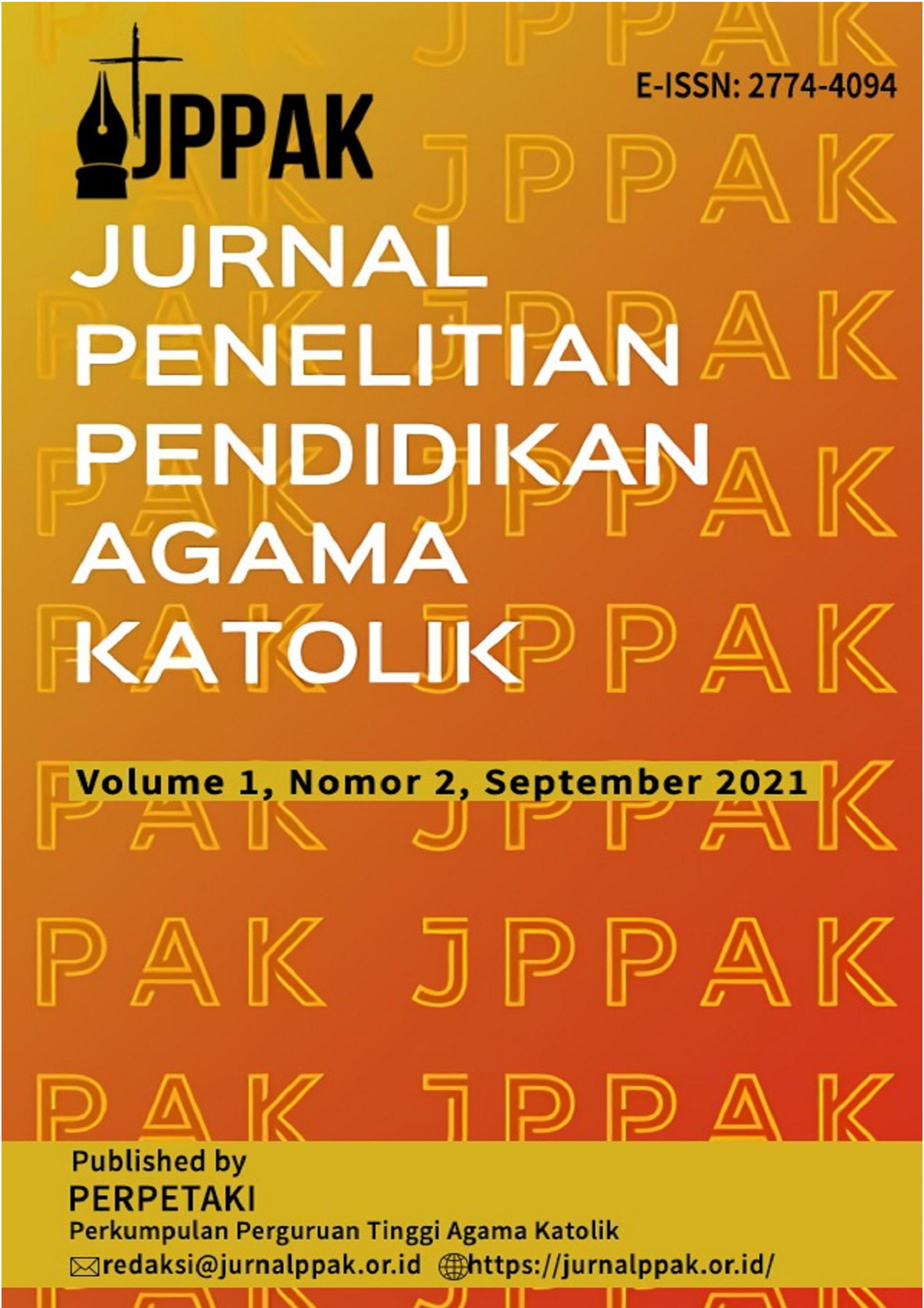Online Learning during the COVID-19 Pandemic from the Perspective of Prospective Catholic Religion Teacher Students: Challenges and Opportunities
DOI:
https://doi.org/10.52110/jppak.v2i2.61Keywords:
Covid-19, Online Learning, Opportunities, ChallengesAbstract
This study aims to determine the challenges and opportunities in the implementation of online learning at STP-IPI Malang during the Corona Virus 19 (Covid-19) pandemic from a student perspective. This research is a descriptive qualitative research with research subjects are students of the Catholic Religious Education Study Program (PKK). The data was obtained through a survey with an open questionnaire which was circulated through the Google form. Data analysis was carried out using Miles and Huberman's interactive analysis technique with the stages of data reduction, data presentation and inference. The data reduction stage is carried out by grouping all the data obtained according to the specified category. In addition, the presentation of data based on categories regulated according to regulations then eliminates things that are not appropriate. The next stage provides meaning and conclusions from the processed data as a result. The results of the study show that online learning opportunities offer opportunities to learn how to use technology with the available functions, helping students to be more creative and gain the ability to shape learning using the tools available in the technology devices used. However, in reality the tendency to be lazy, interact less with peers, lack discipline, get bored easily, and lack focus in learning is a challenge that dominates students. It is strongly felt that the application of self-building learning which is the hallmark of the PPAK Study Program cannot be implemented effectively and maximally.
Downloads
##submission.downloads##
Submitted
Accepted
Published
How to Cite
Issue
Section
License
Copyright (c) 2022 Emmeria Tarihoran

This work is licensed under a Creative Commons Attribution-ShareAlike 4.0 International License.
Copyright Notice and Permissions
Jurnal Penelitian Pendidikan Agama Katolik offers immediate open access to all its content on the principle to make researches freely available to the public, especially to the scholars, to support greater global exchanges of knowledge. This journal encourages all scholarly authors to allow their research openly available, free access and without time restrictions.
All articles published Open Access will be immediately and permanently free for everyone to read and download. Under the CC BY-SA 4.0 license, authors retain ownership of the copyright for their article, however authors grant others permission to use the content of publications in Jurnal Penelitian Pendidikan Agama Katolik (JPPAK) in whole or in part provided that the original work is properly cited. Users (redistributors) of Jurnal Penelitian Pendidikan Agama Katolik (JPPAK) are required to cite the original source by including at least: the full title of the article, the author's or authors' full name(s), JPPAK as the initial source of publication, year of publication and volume number using a propriate citing method.
Copyright encompasses exclusive rights to reproduce and deliver the article in all form and media, including reprints, photographs, microfilms and any other similar reproductions, as well as translations. The reproduction of any part of this journal, its storage in databases and its transmission by any form or media, such as electronic, electrostatic and mechanical copies, photocopies, recordings, magnetic media is prohibited without consent of Jurnal Penelitian Pendidikan Agama Katolik (JPPAK).
Jurnal Penelitian Pendidikan Agama Katolik (JPPAK) is licensed under a Creative Commons Attribution Share-Alike 4.0 International. (CC BY-SA 4.0)
Authors who publish with Jurnal Penelitian Pendidikan Agama Katolik (JPPAK) agree to the following terms:
- Authors retain copyright and grant the journal right of first publication with the work simultaneously licensed under a Creative Commons Attribution Share-Alike 4.0 International (CC BY-SA 4.0) license that allows others to share the work with an acknowledgement of the work's authorship and initial publication in this journal.
- Authors are able to enter into separate, additional contractual arrangements for the non-exclusive distribution of the journal's published version of the work (e.g., post it to an institutional repository or publish it in a book), with an acknowledgement of its initial publication in this journal.
- Authors are permitted and encouraged to post their work online (e.g., in institutional repositories or on their website) after the publication on JPPAK, as long as it not published on other OJS for it will be treated as plagiarism by plagiarism checker apps. It can lead to productive exchanges, as well as earlier and greater citation of published work (See The Effect of Open Access).












